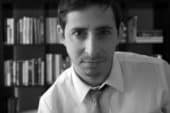
I’ve had dreams like this before. Ones where my teeth crumble in my mouth like dry cookies or dissolve like sugar cubes. Maybe I’m eating too much junk food. Maybe my similes are too sweet.
It’s hard to find a reliable source on the meaning of dreams. From all I have gathered over the years, dreams involving toothlessness or teeth falling out represent aging and concern over one’s physical appearance — being unattractive. Makes sense. I can sometimes be a little vain. That clash with vanity helps fuel the status of my mental health — my confidence and control over my daily neuroses. And I wonder: Is my mental health informing my dreams or vice versa, and can I use these terrifying dreams to my benefit? I sought out help to sink my teeth into the answers.
“Dreams really can speak in incredibly elegant ways to the ideas and conflicts someone is unconsciously working on,” as well as current life issues and childhood conflicts, says Jeremy Bloomfield, PsyD, a clinical psychologist and psychoanalyst affiliated with the Family Institute at Northwestern University and a clinical associate faculty member at the Chicago Center for Psychoanalysis. “Dreams can be staggeringly informative, but it does take some work to unravel them.”
Bloomfield explained to me that dreams “absolutely” can be useful in understanding or influencing our mental health. Ultimately, our dreams, when we take time to unpack them, can provide us with self-knowledge that can be quite empowering. He says dreams are a “window to a better understanding of self and what you’re struggling with and how.” If we know the what and the why, we can find ourselves in a position to make better decisions during our waking hours or avoid getting stuck in our fears.
Dreams can help us. Sometimes, dreams protect our sleep. Like when the alarm goes off but instead of waking up, we remain asleep with the sound becoming part of that dream. Although, maybe that’s not so helpful because I’ve missed at least two flights that way, which is hilariously appropriate because missing a flight in a dream is interpreted as struggling to make a big decision. I struggle to decide what socks to wear.
The trick is making our dreams work in our favor. It’s something Bloomfield says anyone can teach themselves by practicing lucid dreaming. During a lucid dream, the dreamer is aware that they are dreaming and may be able to have some control over the dream narrative. “You can be the director of your dreams, reduce nightmares and still use the content to learn more about who [you] are,” he says.
The images manifested in our dreams are equally as important as the images we avoid. If I could — and one day, maybe I’ll be able to — avoid my crumbling teeth, I’d probably dream of myself losing control of a car as it careens off a cliff. What’s that say about me? More self-doubt and no control over my own life.
Like Bloomfield advises, learning more about our unconscious helps resolve conflicts and buffer us from the negative impact on our conscious lives.
I only need to understand those images and sort through what they actually represent. If I can do that, I’m sure to find myself much calmer, in which case, I might dream mostly of calm water. And calm water means smooth sailing. Though I have no idea what it means if I dream of sailing. Perhaps I’m just glad to have enjoyed another great summer in Chicago.












